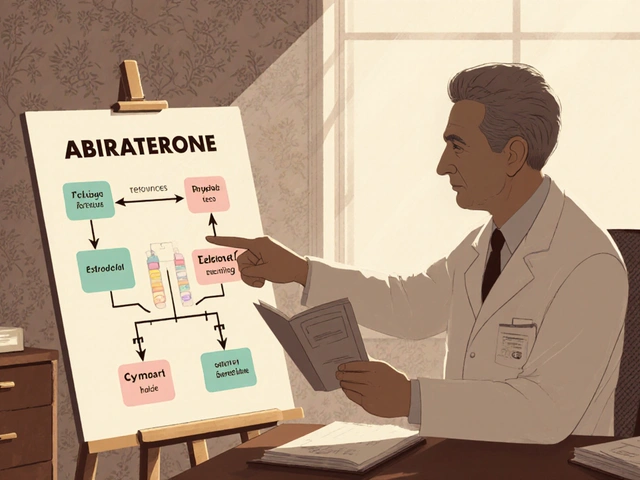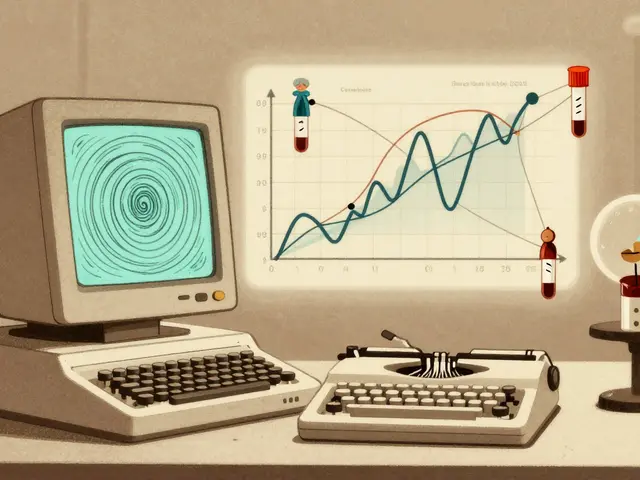Everything You Need to Know About Mood Stabilizers
If you or someone you love has mood swings that feel out of control, a mood stabilizer might be the missing piece. These meds aren’t just for "bipolar" – they help smooth out extreme highs and lows caused by many mental‑health conditions. Below we break down how they work, which ones are most common, and what to watch for when you order them online or pick them up at a pharmacy.
What Is a Mood Stabilizer?
A mood stabilizer is a drug that keeps emotional highs (mania) and lows (depression) from swinging wildly. Unlike antidepressants that only lift mood, stabilizers aim for a flat, manageable baseline. They do this by affecting brain chemicals such as serotonin, dopamine, glutamate, and, most famously, lithium ions.
The two big families are:
- Lithium – the oldest and most studied. It’s simple chemistry, cheap, and works for many people, but it needs blood‑test monitoring because the therapeutic range is narrow.
- Antiepileptic mood stabilizers – drugs originally made for seizures, like valproate (Depakote), lamotrigine (Lamictal), and carbamazepine (Tegretol). They’re useful when lithium isn’t tolerated or when you need extra help with depression.
Some newer agents, like atypical antipsychotics (e.g., quetiapine), are also approved as mood stabilizers because they calm mania and help with sleep. Knowing the class helps you anticipate side effects and what kind of monitoring you’ll need.
Choosing and Buying Mood Stabilizers Safely
First step: talk to a doctor or psychiatrist. They’ll decide which drug fits your health profile, check kidney and liver function, and set a starting dose. Never start a mood stabilizer on your own – the risk of toxicity, especially with lithium, is real.
If you’re in the UK, the NHS often prescribes lithium or valproate, but private options exist too. When buying online, look for these red flags:
- The pharmacy must require a valid prescription – no “just click and buy” shortcuts.
- Check that the site displays a UK registration number (e.g., MHRA‑licensed).
- Read reviews that mention timely delivery and proper packaging.
- Avoid prices that are dramatically lower than market average – that usually means counterfeit.
Popular online pharmacies like DragonPharmaStore and Titans.to have been reviewed by patients for safety, but always double‑check their credentials. If you spot a deal that sounds too good to be true, trust your gut and walk away.
When your prescription arrives, store lithium at room temperature away from heat, and keep it out of reach of children. For antiepileptic drugs, follow the label about food interactions – many need to be taken with meals to avoid stomach upset.
Lastly, schedule regular blood tests. Lithium levels are checked every few weeks at first, then every few months. If you feel shaky, nauseous, or notice an unusual increase in thirst, call your doctor right away – those can be early signs of toxicity.
Bottom line: mood stabilizers can dramatically improve quality of life when used correctly. Get a proper diagnosis, stick to a reputable pharmacy, and keep up with medical monitoring. With the right approach, you’ll find that the emotional rollercoaster levels out, and everyday life feels steadier and more enjoyable.
Maximize Your Well-being with Lithium: The Surprising Supplement for Mental Health
Explore the overlooked benefits of lithium as a dietary supplement, its role in mental health, daily sources, safety tips, and practical guidance for boosting your well-being.
Lithium: What It Is, How It Works, and Why It’s Essential for Mental Health
Lithium is a proven mood stabilizer used for bipolar disorder, reducing mania, depression, and suicide risk. Learn how it works, its side effects, and why it's still the gold standard despite newer drugs.






